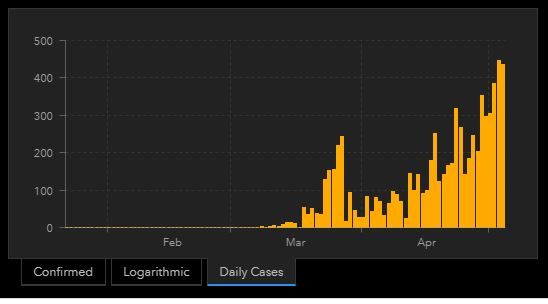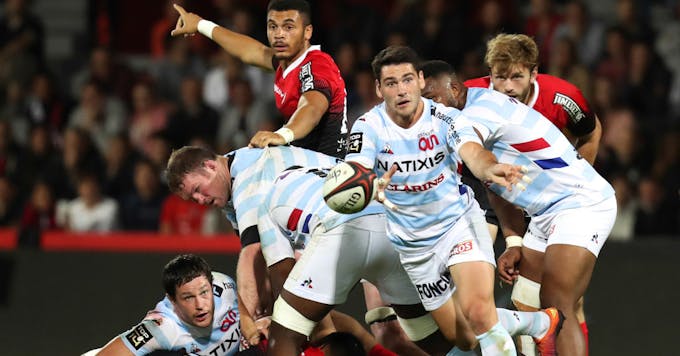Rugby Finances
-
@taniwharugby said in Rugby Finances:
I wonder how much sympathy the Euro clubs will get?
I've just has a look around here and I found none, zero, nada, not a shred. As @jegga might say they can GFYs (that should be GFTs, but whatever).
-
@taniwharugby said in Rugby Finances:
I wonder how much sympathy the Euro clubs will get?
Not much.
I'll have a bit of sympathy for some French clubs if they were to get into difficulty. That is genuinely popular league with big crowds and a good TV deal, and there are lots of clubs (14 in the top division plus a bigger Pro D2 division). Although, this is said by me with plenty of ignorance of the financial viabilty of the league. There's about 30 pro clubs in France employing untolds of Fijians, Georgians, Argentinians etc with no impact on their national availability (Athough, ironically, the JIFF regulations will impact negatively on that but positively on SANZAAR).
But I wouldn't have any sympathy for the English clubs. From Day 1 in 1996 when they went pro they started paying double the going rate of the only other professional rugby in the world at that time, and have never been in profit or balance since in the subsequent 25 years.
They aren't genuinely successful and popular like the French league. Instead they have 1/4 of their own league that can't keep up with their own sugar-daddied unsutainable lifestyle. The other 3/4s can only keep up so long as they are sugar-daddied up. But only for so long. Plus there is Exeter.
They don't have a pro second division. They have only 13 teams. 12 in prem and 1 yo-yo-ing up and down for a year versus the semi-pros. So, they aren't employing hoards of T2 players.
A second division would mean spreading the pie more thinly so that SH nations and Celtic nations could compete financially with Premiership teams coping with a smaller domestic slice of their own pie.
In the mean time. The extend and pretend premiership removes the ability of the SH teams to have a viable professional domestic competition. Can't compete v 13 pro English teams financially. Might be able to if they tried to support 24 pro teams.
SH teams had already committed to S12 before all this, so only having 5 pro teams in NZ and SAF - 3 in Aus. So,that isn't their fault. The RFU botched it in 1996, so that isn't their fault either. But the outcome is a disaster.
If they were genuinely rich and successful, I wouldn't begrudge them. But, they'e done so much damage while just faking it.
But the best thing that could happen. Is if Europe re-setted to paying more teams/players less, and out of real earnings rather than borrowings or especially pumped in outside-sourced cash. So that SH teams could also pay more players, less.
If there were e.g. 3 x 10-team professional leagues in NZ, Aus, Saf (instead of with SuperRugby there are currently 13 teams between all 3). If their were 24 pro teams i England rather than 13. If Italy was still an independent 10 team pro league.
There would be 36 extra pro teams in the world. We wouldn't need the silly Nathan Hughesing, Speighting, Fekitoaing of the PI players by having to be eligible for host union to get a pro contract. As no chance/worry of all your 10s, THPs or hookers being foreign when you have 10 or 24 teams rather than only 5 or 2 teams.
All of this can/could have come about by just living within your means.
-
London Scottish have become the first Championship club to announce they are turning semi-professional after the RFU announced they were cutting funding to the second-tier ahead of next season.
The RFU announced in February they were cutting their annual contribution per club from £534,000 to £288,000, to be phased in over the next two seasons.
And London Scottish have become the first club to give up their professional status as a result of the changes.
In a newsletter to club members, chairman Malcolm Offord wrote: "We switch our model from a full-time professional environment with daytime training to a part-time model where our players do real jobs in the daytime and train in the evenings."
TBH, I thought they already were semi-pro.Since the demise of Leeds/Yorkshire's pro status I thought only the 13th PRL owner (Newcastle), and the new-money Ealing, were full time pro.
-
@taniwharugby said in Rugby Finances:
I wonder how much sympathy the Euro clubs will get?
You'd have to be ridiculously naive to think funding won't come out of somewhere for French rugby.
-
@Machpants That would be disgraceful. I'd be happy to see the end of the Lions if they treated it with such contempt.
-
Who exactly do England, Ireland, Scotland and Wales expect to play if they want to host fixtures next July?
It won't be SA (for obvious reasons) or NZ, Aust and Arg who will be wanting to have home tests themselves. So that leaves Japan, Fiji, Samoa and Tonga. Or tests against each other again?
-
I can't get worked up about the Lions tour as it is still so far away with so many unknowns. I mean, how many tour packages are still to be sold? Probably heaps.
But playing themselves won't work.Everyone can't play themselves, someone needs to be the away team.
If hemispheres play themselves in July, then obviously there will be repercussions in November. Then what? Play themselves again? Net gain? zero.
Although would bring forward some cashflow by 4 months, not increase or replace cashflow.
The least disruptive way to bring forward cashflow, if July next year is among first windows with crowds able to attend, would be for the 4 Home Unions to organise a one off revenue sharing agreement with South Africa, where SAF gets to share in 3 November tests at a later date in recompense.
-
@Machpants said in Rugby Finances:
@Rapido They can play home and away, ie 6N, and make many times more money than they do with Lions Tour.
But half of them plays away in a 6N weekend, and then they will have no T1 SH nation tour in November if they were to take that approach, so they play themselves again in November? but half of them play away again.
6 weekends in July and November window, 3 home game, 3 away.
If they play amongst themselves, they will still have 3 home game, 3 away.
Although for Lions tour they have 4 weeks, not 3, this time, plus probably a prep week (for Guinness League based players).
-
The Rugby Football Union’s chief executive, Bill Sweeney, has warned it would be a “catastrophe” if the Six Nations is hit next year by coronavirus, admitting the organisation would need a government bailout if England do not play again until next summer.
Sweeney revealed the union is facing losses of at least £100m if England’s autumn internationals are played behind closed doors – the figure rises to £122m if they are cancelled. Speaking to the digital, culture, media and sport committee, he conceded that if the Six Nations next year is similarly affected “we would have to come to the government for support”.
The bleak financial outlook for the RFU comes after World Rugby issued guidelines warning that no competitive rugby should take place until governments allow gatherings of 250 people. The guidance also suggests that elite rugby matches are likely to take place behind closed doors, or in front of radically reduced crowds, until a coronavirus vaccine is freely available, which could take up to 18 months.
Sweeney said that even if England’s autumn fixtures go ahead as planned the RFU stands to lose £47m. In all likelihood, however, the union – which has already placed 60% of its staff on furlough – is facing a far greater hit with Sweeney conceding rugby union may be one of the “last cabs off the rank” because of its high-impact nature.
“If this was to be prolonged and go through into the next summer and the Six Nations games were impacted, then there would be a catastrophic impact on rugby union in England,” Sweeney said, adding that it could take up to six years for the RFU to recover financially from the coronavirus crisis.
“Twickenham is a major asset for us. Compared to the southern hemisphere, most of those unions don’t own their own stadiums. We tend to own stadiums in the northern hemisphere. When you own a stadium it is a major cost, but you can generate a tremendous amount of revenue from that. Hence the importance of the autumn internationals taking place in November. If we get into a situation where we’re talking about Six Nations matches in February and March next year impacted there’s a limit to what we can do independently – we would have to come to government for support.”
Sweeney, however, continues to plan for the autumn fixtures to go ahead, along with England’s postponed Six Nations match against Italy. There is no broadcasting deal in place for the four autumn Tests, with Sweeney admitting the bidding process for those rights and the new Six Nations deal was on hold.
Advertisement
He did not rule out a deal with a free-to-air broadcaster but conceded that would likely cost the union another £10m. “We find ourselves in a very difficult situation in terms of wanting to have the largest number of the population watching the games and we get something like nine million watching the Six Nations matches on free-to-air as we had last season. But at the same time, as highlighted by the Covid situation, we need to maximise the possible revenue we can achieve.”
Well, there will most likely be huge pressure on the Home Unions come July next year, I now don't hold much hope for the Lions tour even if sport and travel was back to normalish by then.
-
I don't see England's tests against NZ, Arg and Aust happening if the July tests in the SH are cancelled. SANZAAR nations will prefer to have some sort of RC in that Nov window if international travel is permitted to provide them with home tests and revenue themselves.
-
@gt12 said in Rugby Finances:
whats the ownership structure of the RFU? We’re I a British taxpayer, I’d be asking for an ownership stake or shares in key assets and/or competitions if I were hit up to bail them out.
I'd assume it would be a loan rather than a bailout.
The UK government have just given the RFL a £16m loan.
-
@Bovidae said in Rugby Finances:
I don't see England's tests against NZ, Arg and Aust happening if the July tests in the SH are cancelled. SANZAAR nations will prefer to have some sort of RC in that Nov window if international travel is permitted to provide them with home tests and revenue themselves.
I think its quite safe to assume there won't be any inter-hemispheric test rugby this year.
There will likely be no test rugby at all, maybe only NZ v Aus if the trans-tasman bubble comes into being.South Africa aren't on the right carona-curve trajectory, there will be no TRC.
Unfortunately, this them at the end of their just-loosened lockdown.

-
Speaking of South Africa and finances:
-
From the article linked further up ^
“Twickenham is a major asset for us. Compared to the southern hemisphere, most of those unions don’t own their own stadiums. We tend to own stadiums in the northern hemisphere. When you own a stadium it is a major cost, but you can generate a tremendous amount of revenue from that. Hence the importance of the autumn internationals taking place in November
The whole, build a bigger stadium jibe, is showing the other side now. It come with costs and risks.
The whole reason revenue-sharing extra November tests came into being was because in the early 2000s the WRU were about to go bankrupt under their Millenium Stadium debt.
While bankruptcy is not a risk for the RFU under normal circumstances, They have borrowed £80m to re-develop their Twickenham East Stand (which was only 25 years old). As of last financial report they had reduced that debt to £60m already, paying off an incredible £15.2 million in a year ..... (while needing to cut funding to the Championship and the community game, however).
But with the following year beign a RWC years they expected to make a loss, this year expected to be a bumper year with the 4th November international.
https://www.sportspromedia.com/news/rfu-england-rugby-profit-revenue-2018-19
From: December 5 2019The Rugby Football Union (RFU), the game’s governing body in England, is back in profit for the 2018/19 financial period having banked UK£14.9 million (US$19.6 million), a dramatic turnaround on the UK£24.4 million (US$32.1 million) losses posted the previous year.
Overall, profits before rugby investment jumped 39 per cent year-on-year to UK£115.4 million (US$151.5 million).
The RFU’s latest annual filing also reveals revenues of UK£213.2 million (US$280.1 million), up UK£40.8 million (US$53.5 million) on the previous year.
The upturn in the RFU’s financial fortunes have been credited to stronger sponsorship revenues, more international matches played at Twickenham stadium, a reduction in overall rugby investment and lower overheads. At the end of the year, outstanding bank loans totalled UK£59.5m (US$78.2 million), down UK£15.2 million (US$19.9 million).
In focus, sponsorship revenue increased from UK£29.3 million (US$38.4 million) to £32.8 million (US$43.1 million), helped by IBM, Unilever and CBRE all renewing their partnerships with the RFU. New deals were also signed with the likes of British Airways and Majestic Wine.
Twickenham, the largest rugby union-dedicated stadium in the world, helped bring in more revenue, with ticket income leaping 59 per cent to UK£47.6 million (US$62.6 million) and broadcast takings increasing 21 per cent to UK£49.7 million (US$65.2 million)
Merchandising and licensing also saw a healthy rise of 44 per cent to UK£4.5 million (US$5.8 million).
In addition, the financial figures point to a significant severance package for chief executive Steve Brown. Total remuneration for the full senior management team, inclusive of social security costs, was UK£2.9 million (US$3.7 million), UK£400,000 (US$525,000) more than last year. Brown announced his resignation in November 2018 after only 14 months in the role following mounting criticism over the RFU’s increasing losses.
Andy Cosslett, the RFU’s chairman, said: “Maintaining the Union’s financial stability requires prudent planning, financial discipline and, when necessary, strong action to be taken on costs. Over the past two years we have felt it necessary to take such action in response to revenues falling short of some ambitious forecasts and a more uncertain outlook.
“Parts of the game that rely on our financial support and many RFU departments were asked to cut back. While this work has been difficult and presented challenges, investment levels in the game remain high. During the year, the RFU invested £100.5 million (US$132.1 million) [2018: £107.7 million or US$141.4 million] in the game, and the financial position of the Union has strengthened.”
RFU chief executive Bill Sweeney added: “Twickenham Stadium generates 85 per cent of our revenues to invest in the game at both the performance and community levels. We welcomed 1.2 million people across 22 major events during the year and the East Stand, which opened for the autumn’s Quilter Internationals, brought excellent feedback and added to the stadium’s status as a world-class venue.”
The RFU added that the organisation faces a Rugby World Cup year loss in 2019/20 for the first time in eight years, due to no Twickenham autumn internationals.
-
Cancelled autumn and Six Nations Tests would cost WRU £50m of revenue
-
Interesting that Top 14 apparently dont have option to cut wages.
Clubs in France still bear weightier financial responsibilities to their employees than English clubs. “French law doesn’t enable clubs to do what British law does,” Gillham adds. “Clubs in England have just cut salaries by 25 per cent – Newcastle stopped paying anybody. That’s not possible in France.”
That is from 08/04 ^
Also in that article, these paragraphs:One possibility may be interest-free or low-rate loans to clubs, but whatever lifeboat options are finally agreed, Gillham said that the LNR will honour its commitments, and that it has strong support from its partners, including pay-TV broadcaster Canal Plus, which has a better current relationship with French rugby than football.
It recently held back a scheduled €110million payment for broadcast rights to French football’s Ligue 1.
“This is the perfect example of force majeure,” a spokesman told AFP at the time. “There are no more matches, so there are no more payments. We are strictly applying the terms of the contract and we don’t see why we would do it any other way. Canal Plus is not a bank.”
Gillham said Canal, which is also paying €97million a season for Top 14 broadcasting rights, will remain a strong partner for the sport.
“Canal Plus loves rugby,” he said. “Canal Plus thinks it gets value for money from rugby. And Canal Plus is a partner until at least 2023. The TV money is not going to go away,” Gillham, who sits on the management board of the broadcaster’s parent company, Vivendi, said.
6 days later on 14/04:
French pay-television broadcaster Canal Plus will not pay the final rights fee instalment for this season’s Top 14 rugby union competition, it has been reported.
The move comes despite expectations in some quarters that the broadcaster’s strong relationship with rights-holder Ligue National de Rugby would ensure the fee was met.
Canal Plus was next month due to pay the remaining 15 per cent of its €97m ($104.5m) fee for the 2019-20 season, but this will no longer happen, reports L’Équipe.
The broadcaster had shown 60 per cent of matches before the league was suspended due to the Covid-19 pandemic. Canal Plus has already paid 85 per cent of the annual fee (€82.5m), suggesting that, in theory, it could push for a re-imbursement of around €24.3m from the LNR.
-
I've made this table of the financial positions going into the crisis for the 8 major unions, supporting, or subsidising professional rugby.

Lots of various factors in play though. For example
- For Ireland - do they fund their entire professional game pretty much from $USD93.83m. How much provinces revenue and spending is separate from this?
- England 'only' fund UK£25.5m per year in grants to the 13 Premiership clubs, which is $USD27.64m out of a 2 year average of $USD238.55m in revenue.



 Canal Plus ‘won’t pay’ final Top 14 rights fee instalment
Canal Plus ‘won’t pay’ final Top 14 rights fee instalment
